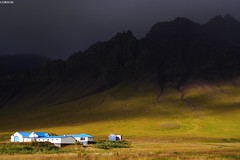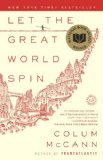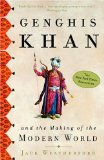Category: Books & Learning
My First Tsunami
March 2, 2010 | 4 comments { Books & Learning, Travel }
Curiosity. I have it. The frightful 8.8 magnitude quake that jolted poor Chile last Saturday sent out reverberations: the threat of tsunamis all through the Pacific world. As it happened, I was scheduled to spend the weekend at my friend Emma’s family’s house in the misty, spruce-studded hills just above Cannon Beach. The tsunami was scheduled to reach that part of the Oregon coast at right around 3PM local time. I needed to see what this looked like.
It looked like nothing. Too subtle for humans to notice, but very much there. The water changes caused by the far-flung tsunami were merely a foot or so along the western edge of Oregon, but the fluctuations were very real.
Knowledge: Earthshine and the moon’s full earth
February 24, 2010 | 1 comment { Books & Learning }
It’s attention-grabbing and serenely beautiful. Last week the early waxing slice of a young moon cradled a softly glowing, faint disk of the future full moon. I noticed it on my walk home and David burst into my library a quarter hour or so later, insisting that I should “really look at this.”
I was running late to a book club meeting, so I left David with my camera and exhortations to photograph the thing, which he did, admirably.
We know that the brightness of the moon comes from reflected sunlight, and it’s fairly well known that earthshine—sunlight reflected from the earth—can sometimes cause the night side of the moon to be faintly lit.
Book Review: “Let the Great World Spin” by Colum McCann
February 22, 2010 | 2 comments { Book Reviews }There are so few flaws in Colum McCann’s National Book Award-winning novel about humanity and grief that it’s difficult to find a toehold for comment. McCann’s agitated, love-hungry characters weave an emotional fabric so dense that it proves tricky to unravel and examine.
It’s tempting to try to find literal ties to events in this book Esquire bills as the “first great novel about 9/11.” Set in New York city in August of 1974, Let the Great World Spin loosely revolves around George Petit’s guerrilla tightrope walk, strung between the barely-completed Twin Towers of the World Trade Center. The novel’s characters stare up at Petit’s performance awestruck, his bravery (or hubris) impacting their own personal sagas.
Knowledge and Travel: Pine Mountain Observatory, Messier Objects
February 16, 2010 { Books & Learning, Photography, Travel }
It had been my hope to merge my current site theme (The Heavens) with a winter weekend in Sunriver, Oregon. The high desert resort community usually has cold, clear weather at this time of year, and is far away from significant light pollution. That is, the stars can be heavenly, and I have in the past dabbled with entry-level astrophotography there with somewhat acceptable results.
I wanted to write for you about taking photos of stars. Alas, lingering between me and said celestial objects was a stubborn and weepy slab of clouds and mist that did not lift for the entire four days I was out there.
After plan B failed, too, I just had to make something up. Enjoy this latest post in my “heavens” theme series.
Reader Question: How do you know you’ve found your next book?
February 11, 2010 | 4 comments { Books & Learning }Confession: I dither. I dingle. I dabble in and then discard. I have an ongoing disinclination to commit. I’m talking about books. Though I maintain a categorically obsessive list of books slated for reading this year, and even a second-tier categorically obsessive list of books pegged for reading at some point, whenever I finish a book I find myself puttering around in my library, caroming off bookshelves, staring at rows of books in a helpless mire of field dependence*, starting and aborting a few volumes before settling on my next read.
How do you find your next book to read? Intuition? Happenstance? A rigorous curriculum?
I am going to Iceland: Preparation!
February 10, 2010 | 4 comments { Books & Learning, Travel }
A stray inspiration from Autumn last week turned into a full-fledged planned exodus: The Pencils are going to I*eland. That is, both Iceland and Ireland (and also France (and also the UK (well, me at least (David is going back to the US earlier than I am)))).
We are going in late May. The prices on non-stop Icelandair flights out of Seattle seem too good to be true. David’s round-trip ticket was $553.67. Mine was costly enough that I’m embarrassed to disclose the total: I’m flying first class.
Photo by Cristiano Corsini
Knowledge: The Great Northern Lights of 1859
February 9, 2010 | 2 comments { Books & Learning }
At first, it doesn’t seem that September 3, 1859, was out of the ordinary in the northern United States. The New York Times’ “News of the Day” lists quotidian happenings: that the “depredations of the Apache Indians” in Arizona Territory have become “almost uncurable” [sic]; that the city’s churches, closed for the summer, were starting to reopen slowly; that an unfortunate situation with a boiler at a downtown machine shop had left one dead and several flung about.
Between paragraphs about the apprehension of a “mean rascal” who had been fleecing young maidens and a recap of the current attitudes of commodity markets (cotton, molasses, crude turpentine, lime: flat; dry cod-fish, hops and hides: an uptick in demand) was this mention:
“There was another brilliant display of auroral light last night.”
This beautiful photograph of an aurora was taken by ovaratli.
Reader Question: How much does quantity matter?
February 4, 2010 | 6 comments { Books & Learning }
Setting goals for reading a particular number of books in a year can be a good motivator, but there are trade-offs. Relentlessly chasing book count can alter reading choices (eschewing longer works, novellas get over-represented). What do you think: Are quantity-based goals useful or just a petty distraction?
Book Review: “Genghis Khan and the Making of the Modern World” by Jack Weatherford
February 3, 2010 | 1 comment { Book Reviews }Out of nowhere in the early 1200s, Genghis Khan and his Mongol “Horde” swept out of central Asia and in a sort of proto-blitzkrieg overwhelmed cultures from Korea to the Ukraine, acting as a catalyst in the development of cultural elements that we take for granted. Genghis’ horseback steppe nomads didn’t excel at traditional (infantry-focused) warfare, nor did they possess skilled artisans or tradesmen. They had neither prestige nor mercantile supremacy. What they had was the ability to start afresh, without being constrained by convention, and by thinking up new things were able to change the course of world history.
Knowledge: Imbolc, Candlemas and others: the many forms of a waking earth
February 1, 2010 | 2 comments { Books & Learning }
The first week of February falls neatly midway between the Winter solstice and the spring equinox in the northern hemisphere. It is around this time that the very earliest hints of a coming spring make themselves known, though these promising signs can feel bittersweet when one recalls that there are still several weeks of winter yet ahead.
Holidays including Imbolc, Candlemas and Groundhog Day all share certain common roots that intrigue me.
Photo of an Imbolc festival in West Yorkshire by Steven Earnshaw.
From the Archive
From the archive, a few random posts that you might not have seen before.
- Aug 28, 2006 { Life }
Life: Benighted Car Broken Again - Nov 2, 2007 { Life }
Nostalgia! - Feb 13, 2008 { Geek }
links for 2008-02-13 - Dec 4, 2007 { Life, Photography }
Ikea Portland



